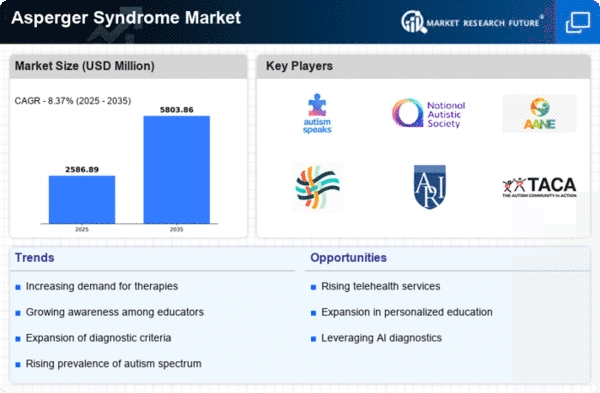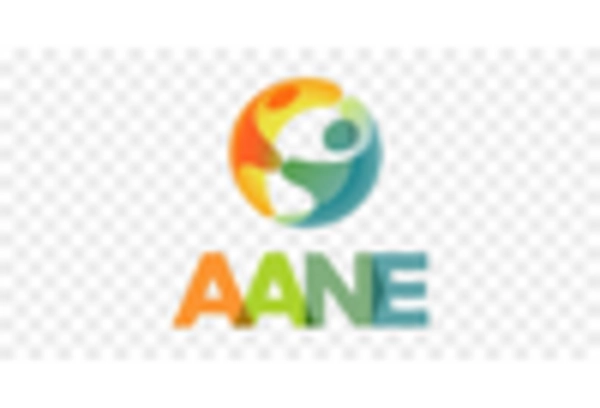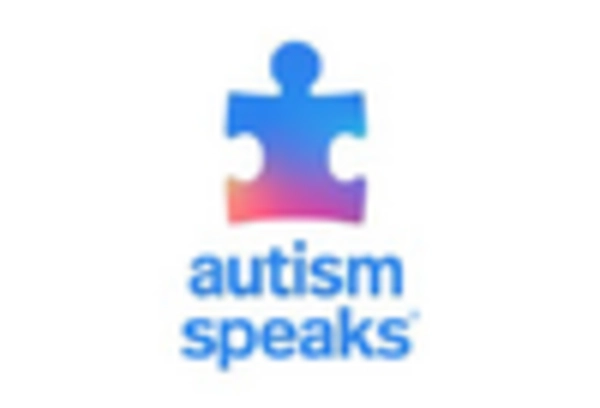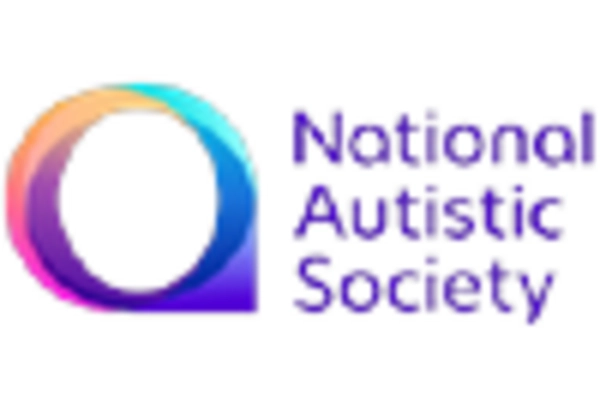Market Share
Asperger Syndrome Market Share Analysis
Companies must employ various strategies to gain and maintain their share of the complicated Asperger Syndrome market. One such approach is differentiation, whereby companies focus on developing innovative therapies, interventions, or support services specifically designed for individuals with Asperger Syndrome. Another vital strategy used by companies operating in the Aspergers' syndrome market is cost leadership, where they strive to be perceived as cost-effective providers of essential services. This necessitates delivering diagnostic assessments, therapies, and educational resources in a more optimized manner so that there are increased chances of accessibility for the wider sections of people who require them. Companies can make themselves appealing to a broader consumer base comprising patients, carers, and healthcare professionals by offering competitive prices that ensure affordability, thereby expanding their shares within it. The positioning strategies of the Asperger Syndrome market are mainly determined by market segmentation. Many companies identify specific subgroups within this spectrum by considering factors such as age, severity of symptoms, and co-occurring conditions. Collaborations and partnerships are instrumental in gaining a strategic position in the Asperger Syndrome market. To pool collective expertise and enhance awareness about changing trends, corporations often enter into collaborations with educational institutions, autism advocacy organizations, and healthcare providers. Marketing activities aimed at creating awareness are crucial for maintaining a certain share of the Asperger syndrome market. In order to reduce the stigma around it and promote early diagnosis, companies finance educational campaigns. The provision of services and interventions for Asperger Syndrome needs regulatory strategies that ensure ethical standards and guidelines are adhered to. Companies focus on securing necessary approvals for their diagnostic tools, therapies, and support programs. This demonstrates credibility while upholding quality control measures laid down by regulators, hence enhancing trust among users in the marketplace. Market share positioning in the Asperger's syndrome market is highly influenced by post-market surveillance as well as ongoing research. For example, these companies show commitment towards continuous improvement because they engage in research that enables them to understand more about the condition, evaluate long-term outcomes of intervention, and evolve with knowledge changing over time, supporting evidence-based practices and thus enhancing reputation among stakeholders.


















Leave a Comment